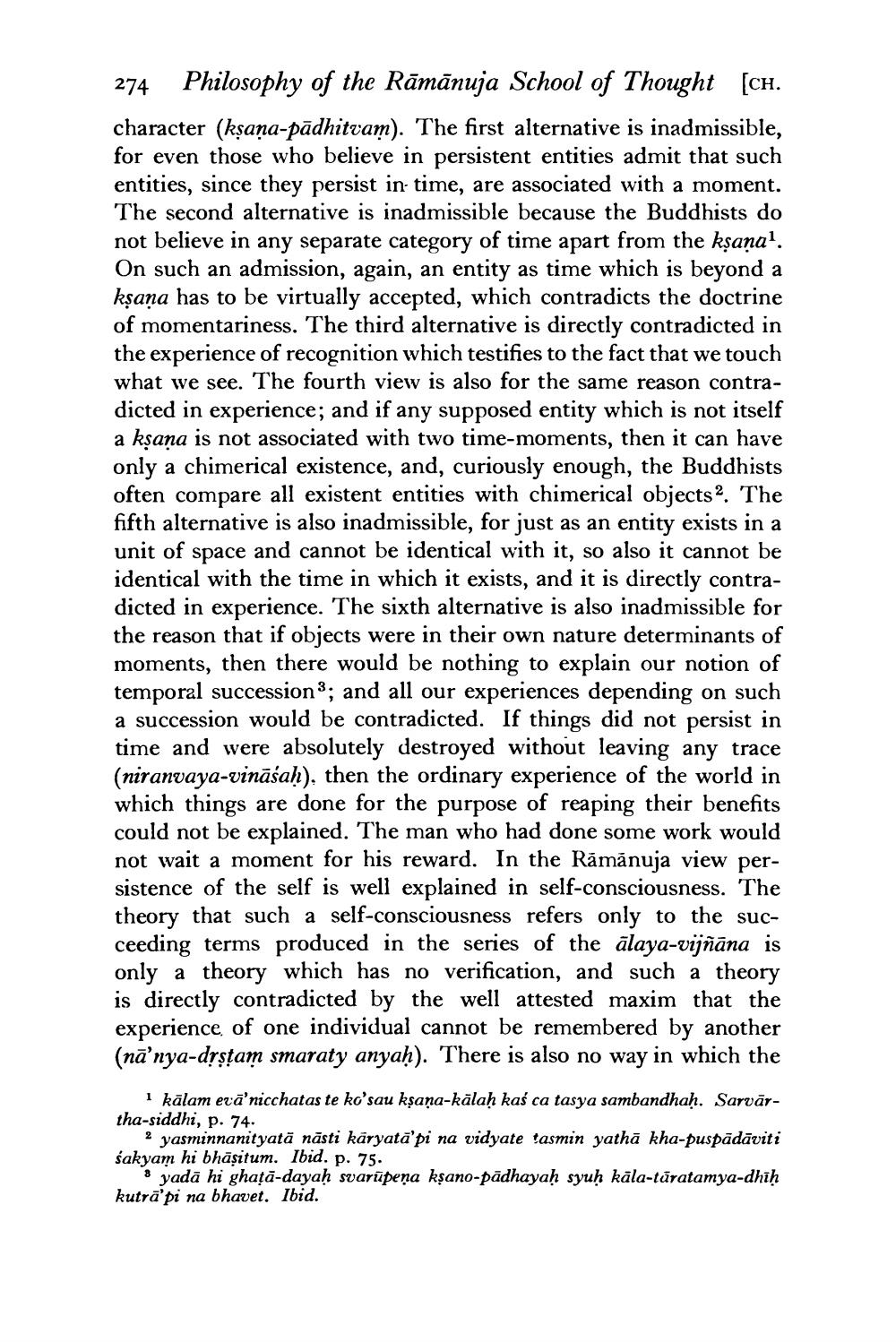________________
274 Philosophy of the Rāmānuja School of Thought [CH. character (kşaņa-pādhitvam). The first alternative is inadmissible, for even those who believe in persistent entities admit that such entities, since they persist in time, are associated with a moment. The second alternative is inadmissible because the Buddhists do not believe in any separate category of time apart from the kșana. On such an admission, again, an entity as time which is beyond a kṣaṇa has to be virtually accepted, which contradicts the doctrine of momentariness. The third alternative is directly contradicted in the experience of recognition which testifies to the fact that we touch what we see. The fourth view is also for the same reason contradicted in experience; and if any supposed entity which is not itself a kşaņa is not associated with two time-moments, then it can have only a chimerical existence, and, curiously enough, the Buddhists often compare all existent entities with chimerical objects. The fifth alternative is also inadmissible, for just as an entity exists in a unit of space and cannot be identical with it, so also it cannot be identical with the time in which it exists, and it is directly contradicted in experience. The sixth alternative is also inadmissible for the reason that if objects were in their own nature determinants of moments, then there would be nothing to explain our notion of temporal succession*; and all our experiences depending on such a succession would be contradicted. If things did not persist in time and were absolutely destroyed without leaving any trace (niranvaya-vināśaḥ), then the ordinary experience of the world in which things are done for the purpose of reaping their benefits could not be explained. The man who had done some work would not wait a moment for his reward. In the Rāmānuja view persistence of the self is well explained in self-consciousness. The theory that such a self-consciousness refers only to the succeeding terms produced in the series of the ālaya-vijñāna is only a theory which has no verification, and such a theory is directly contradicted by the well attested maxim that the experience, of one individual cannot be remembered by another (nā’nya-drstam smaraty anyaḥ). There is also no way in which the
1 kālam evā'nicchatas te koʻsau kşaņa-kālaḥ kaś ca tasya sambandhaḥ. Sarvártha-siddhi, p. 74.
2 yasminnanityatā nāsti kāryată'pi na vidyate tasmin yathā kha-puspādāviti sakyam hi bhāşitum. Ibid. p. 75.
8 yadā hi ghatā-dayah svarūpeṇa kşano-padhayah syuh kāla-turatamya-dhih kutrā'pi na bhavet. Ibid.




